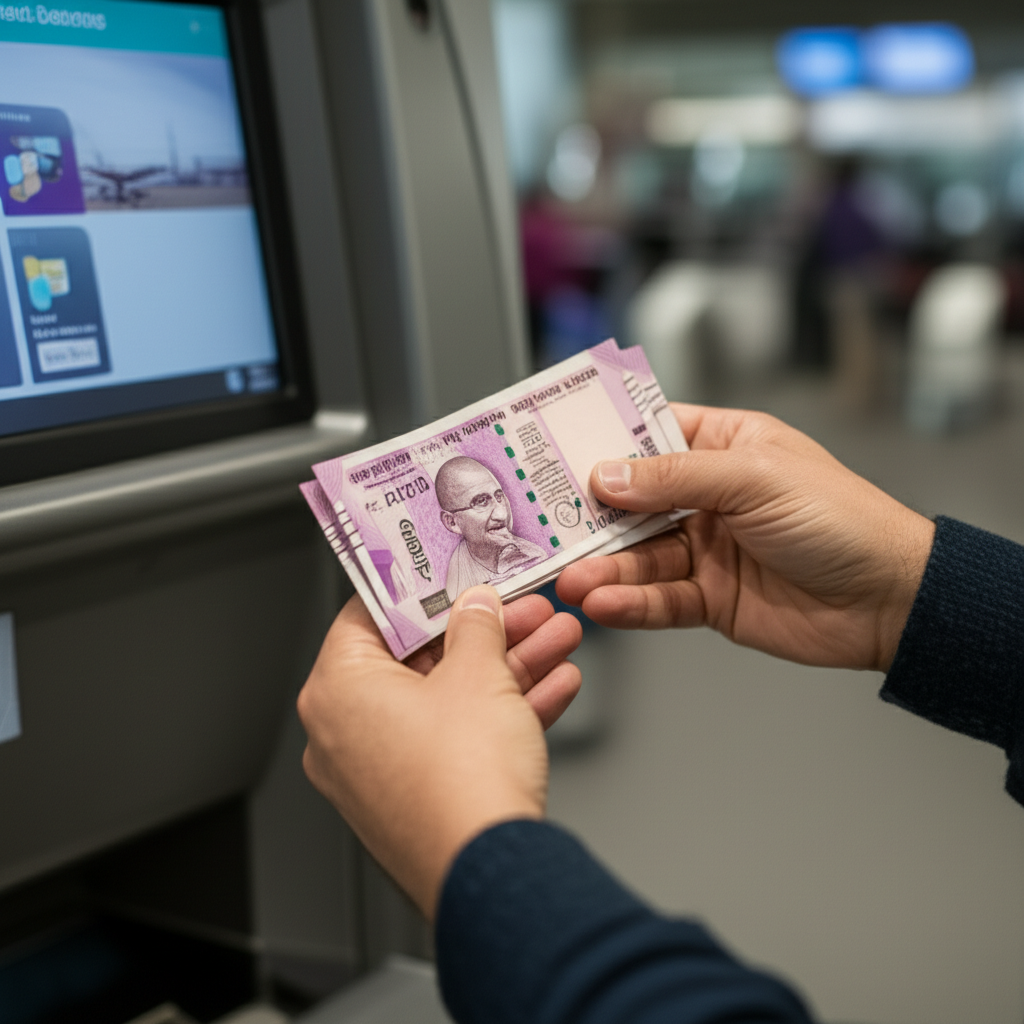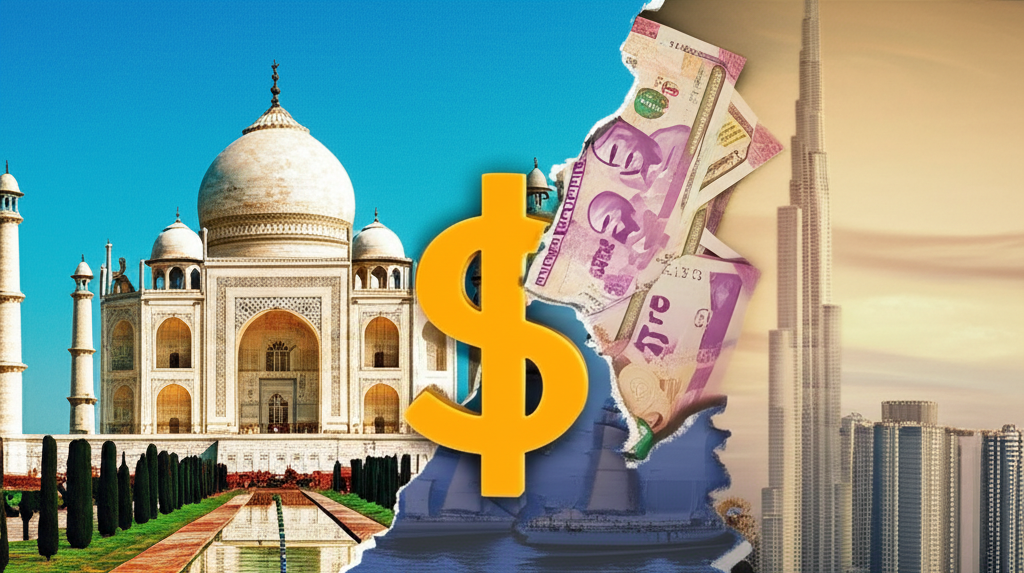- Understanding Currency Restrictions: India to Dubai
- India's Rules on Carrying Cash Abroad
- Dubai's Stance on Incoming Cash
- Best Practices for Carrying Cash Between India and Dubai
- Moving Money Beyond Cash: Smarter Alternatives for India-Dubai Transfers
- Utilizing International Money Transfer Services
- Embracing Digital Wallets & Payments
- Frequently Asked Questions (FAQs) about Moving Money Between India and Dubai
Let’s talk about something that’s on a lot of people’s minds when traveling between India and Dubai: India to Dubai: Cash Limit Revealed. Moving money internationally can feel like navigating a minefield, especially when you’re dealing with cash. We’ve all been there – that nervous feeling when you don’t know the rules. So, let’s cut through the confusion and get you the answers you need.
Understanding Currency Restrictions: India to Dubai
First things first: there are limits on how much cash you can take with you when traveling internationally. This isn’t some shady back-alley deal; these are official regulations designed to prevent things like money laundering and tax evasion. Both India and Dubai have their own rules, and ignoring them could lead to some serious headaches (and potentially far worse).
Now, let’s break down the specifics for traveling from India to Dubai.

India’s Rules on Carrying Cash Abroad
India’s Reserve Bank (RBI) has pretty clear guidelines. You’re allowed to carry a certain amount of Indian Rupees (INR) and foreign currency (like UAE Dirhams – AED) out of the country. But here’s the thing: it’s not a simple, one-size-fits-all number. The amount you can carry depends on a few factors.
Your Purpose of Travel: Are you going for a holiday? Business? A longer stay versus a short trip affects the allowances.
Your Citizenship: Your nationality impacts what you can bring.
The Form of the Currency: Is it cash, traveler’s checks, or electronic funds? (Electronic funds are usually easier to manage).
Generally, you’ll need to declare any amount exceeding a certain threshold. This declaration process usually involves filling out customs forms. Failure to declare funds above the limit can lead to penalties or even legal issues. Let’s make it clear: don’t try to skirt these rules. It’s just not worth the risk.
Pro Tip: Always, always, check the most up-to-date information on the RBI website before your trip. Things change, and the last thing you want is a surprise at the airport.
Dubai’s Stance on Incoming Cash
Dubai, as a major international hub, also has regulations regarding the import of cash. While they might not be as strict as some other countries, you’re still expected to declare any significant amount. Again, this is primarily for tracking and security purposes.
Declaration Threshold: Dubai has a threshold for declaring cash upon arrival. If you exceed it, you need to complete the necessary paperwork honestly.
Currency Exchange: Exchanging currency at official exchange bureaus is always recommended. This creates an official record of your transactions, which can be quite helpful if any questions arise.
Remember, Dubai is serious about financial regulations. It’s their way of maintaining a stable and secure economic environment.
Best Practices for Carrying Cash Between India and Dubai
We’ve talked about the rules, but let’s discuss smart strategies to navigate the situation smoothly.
Travelers’ Checks: These offer a secure alternative to large amounts of cash. They’re easier to replace if lost or stolen.
Credit and Debit Cards: Relying on cards minimizes the need to carry large sums of cash. Ensure your cards are compatible internationally and notify your bank of your travel plans.
Declare Everything: Honesty is the best policy. If you’re unsure, it’s always better to err on the side of caution and declare excess funds.
Keep Records: Maintain records of all your financial transactions, including currency exchange receipts and bank statements. This documentation provides proof of legitimate funds.
Think of it this way: you want a smooth, stress-free trip, right? Following these best practices ensures just that.
Moving Money Beyond Cash: Smarter Alternatives for India-Dubai Transfers
Let’s face it: carrying large sums of cash across international borders is not ideal. Not only is it risky, but it’s also inconvenient. Luckily, there are better ways to handle your finances when traveling between India and Dubai.
Utilizing International Money Transfer Services
We’re not talking about your shady uncle’s offshore account (unless that’s legit), but rather reputable services designed for transferring money internationally. These services are often faster, cheaper, and more secure than simply carrying cash around with you.
Western Union: A household name for trusted international money transfers.
MoneyGram: Another very popular option for sending and receiving money internationally.
Wise (formerly TransferWise): Known for its low fees and transparent exchange rates.
XE: Another excellent option for competitive rates and relatively efficient transfers.
Remember: Compare services and rates before committing to a transfer. Features like transfer speed, fees, and security vary between services, and you want to get the best deal possible.
Embracing Digital Wallets & Payments
The world is going cashless, and for good reason. With options like Google Pay and Apple Pay—plus the increasing adoption of digital wallets in India and Dubai—you have convenient alternatives at your fingertips.
Pre-loaded Cards: Many providers offer prepaid travel cards that can be loaded with currency and used globally.
These are extremely valuable solutions for avoiding carrying large amounts of cash and streamlining your international financial transactions.
Frequently Asked Questions (FAQs) about Moving Money Between India and Dubai
Let’s tackle some common questions surrounding cash limits and international money transfers.
Q: What happens if I don’t declare the cash I’m carrying?
A: You risk significant fines, legal issues, and even potential confiscation of your funds. It simply isn’t worth the risk.
Q: Can I carry Dirhams from India to Dubai?
A: Yes, but you’ll need to declare any amount exceeding the declared threshold for both countries.
Q: What’s the best way to transfer a large sum of money from India to Dubai?
A: Using a reputable international money transfer service is generally the safest and most efficient method. Compare fees and exchange rates before choosing a provider.
Q: Are there restrictions on the amount of money I can transfer electronically?
A: There may be restrictions on how much you can transfer electronically, depending on the method and the countries involved. Always check the terms & conditions of the money transfer application and with the relevant financial institutions. Furthermore, be aware of potential anti-money laundering regulations.
Q: How long does an international money transfer typically take?
A: Transit times vary depending on the service, the amount involved, and whether you are transferring between banks or using a specialized service. Confirm the delivery time with your selected transfer service before sending your money.
Navigating the complexities of international finance doesn’t have to feel like a daunting task. By following these guidelines, understanding the regulations, and utilizing available resources, you can travel between India and Dubai with confidence, knowing you’re handling your finances correctly. Remember to always check the latest regulations before your trip. Now go and enjoy your travels! India to Dubai: Cash Limit Revealed – we’ve decoded it for you!

